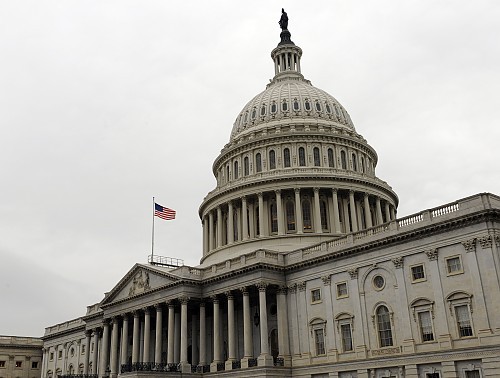Will Pennsylvania's Legalization Of Online Poker End The Efforts In Congress To Ban It?Legislation To Boost $3.2B Casino Market Could Be Nail In RAWA's Coffin |
|
|
 Remember those longshot but nevertheless pesky Sheldon Adelson-funded attempts at banning online casino gaming nationwide?
Remember those longshot but nevertheless pesky Sheldon Adelson-funded attempts at banning online casino gaming nationwide?
Pennsylvania Gov. Tom Wolf on Monday signed a bill that will establish a regulatory framework for the state’s 12 casinos to be able to offer their games over the internet. The Keystone State will be the fourth in the nation with internet casino games, while about 10 others have online lottery services. Pennsylvania will also have the i-lotto.
It’s been estimated that web betting could grow the state’s $3.2 billion-a-year gambling market by around 10 percent. The state casino revenue has been flat since 2012.
Ironically, a pair of Republican U.S. Congressmen from Pennsylvania, Charlie Dent and Michael Fitzpatrick (now retired), supported plans to outlaw the activity. Fortunately, the state legislature saw otherwise, thanks to a need to generate new tax and licensing revenues.
According to the Poker Players Alliance, a grassroots group championing poker on Capitol Hill, Pennsylvania’s move could spell the end of the prohibition efforts.
“When Gov. Wolf signed the bill this week it was a historic day for Pennsylvania consumers, and a clear rejection of federal efforts to dictate iGaming policy to the states," PPA Executive Director John Pappas said. “Going into this week, anti-iGaming forces were already crippled; no federal bills to speak of, fewer Congressional champions and a DoJ with more important things to do than trample states’ rights. Now, I would have to think the ‘RAWA’ effort is mortally wounded.”
Despite the online gaming industry’s victory, Pappas said there is “no time to relax,” as the poker community should “use it to illustrate the power of states to determine their own path for iGaming.” Several other states are already considering the games.
What made Pennsylvania’s move possible was a decision in late 2011 by the Obama Administration. The Department of Justice at the time re-interpreted the decades-old Wire Act, watering it down so that states could enact their own web gaming laws. It didn’t hurt that the largest offshore sites were kicked out of U.S. cyberspace earlier that year.
That DoJ decision has been in the cross-hairs of the 84-year-old Adelson, who has viewed the games as a threat to his brick-and-mortar casino empire. Adelson, who has a net worth of more than $35 billion, operates the largest casino company in the world based on revenue.
Meanwhile, some competitors, notably MGM Resorts and Caesars, ventured into the space.
 Adelson has funded efforts from Republicans to “restore” the Wire Act, which would prohibit a state-by-state proliferation of internet betting and put an end to the industries where it’s already happening. There was talk of giving i-lotteries a carveout. Earlier this year, the New Jersey legislature passed a resolution opposing any attempt to put the genie back in the bottle.
Adelson has funded efforts from Republicans to “restore” the Wire Act, which would prohibit a state-by-state proliferation of internet betting and put an end to the industries where it’s already happening. There was talk of giving i-lotteries a carveout. Earlier this year, the New Jersey legislature passed a resolution opposing any attempt to put the genie back in the bottle.
Online gaming has been a massive success for Atlantic City casinos, as revenues from the activity are projected to hit $240 million this year. The games helped the seaside gambling town recently post its first year-over-year gaming revenue gain in nearly a decade.
Pennsylvania would surely fight back as well if it had to. Pennsylvania has close to 13 million people, so its online market should be larger than its neighbor to the east.
New Jersey announced last month that it will be pooling its online gamblers and poker players with Nevada and Delaware, the other two states with the games. Pennsylvania could join in. Doing so would expose regulated online poker to a combined population of more than 25 million.
Sheldon Adelson in Pennsylvania
What a difference six months can make.
In April it was reported that Adelson donated heavily to President Donald Trump’s inauguration, which rejuvenated concerns that his pet project to ban online gaming might have new life.
U.S. Attorney General Jeff Sessions, a Trump nominee, baffled many earlier this year by saying that he was “shocked” by the federal government deciding in 2011 to allow states to make their own laws on internet gambling. Though he ended up withdrawing his personal involvement with the issue, his comments were still very worrisome to poker players across the country.
By November, those fears seem to have subsided.
Adelson’s Las Vegas Sands owns Sands Casino Resort Bethlehem, one of the largest of the state’s 12 brick-and-mortar casinos. In the spring there were reports that MGM was trying to buy the property, but those talks apparently have ended. A private investment group is now reportedly pursuing the casino that Adelson said he regretted opening in the first place.
It seems reasonable to question whether Pennsylvania’s move toward online gaming might give Adelson’s company more motivation to finally unload the casino.
